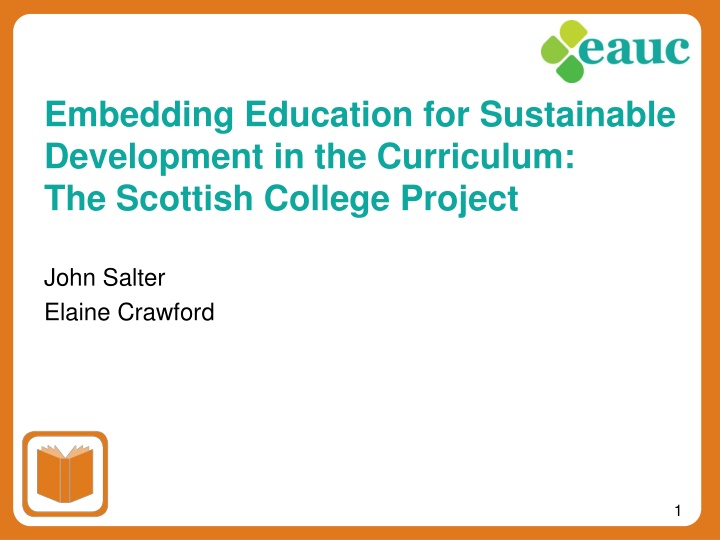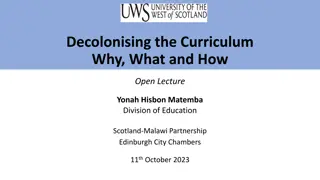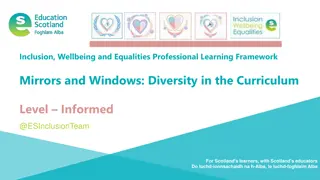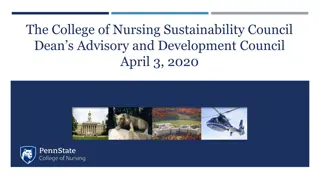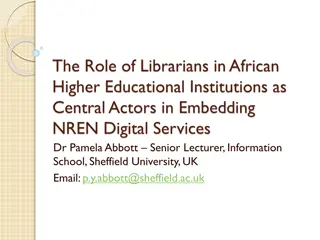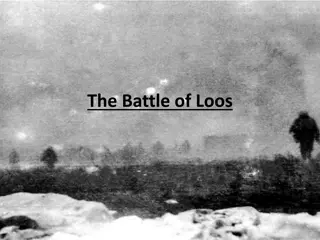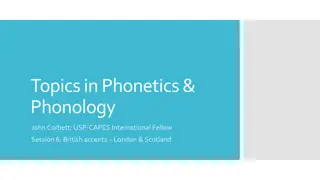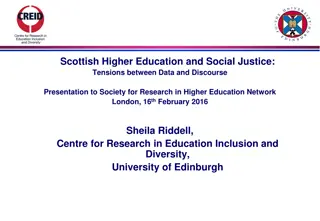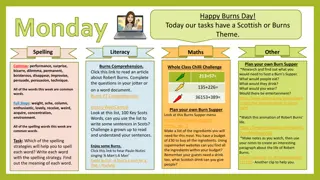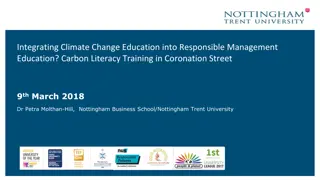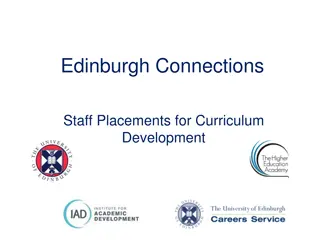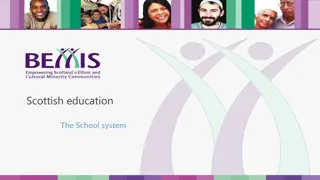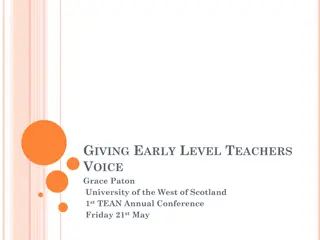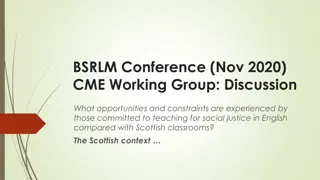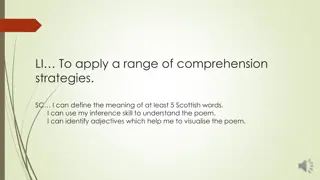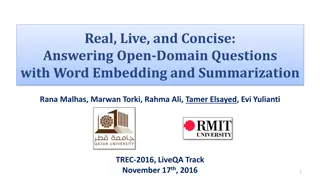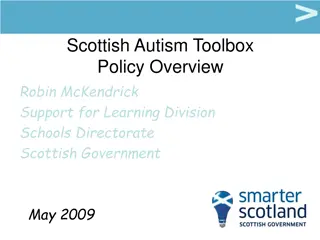Embedding Education for Sustainable Development in the Curriculum: The Scottish College Project
Embedding Education for Sustainable Development (ESD) in the curriculum is crucial for meeting current needs without compromising the ability of future generations to meet their own needs. The concept of sustainable development encompasses social, environmental, and economic elements. Education for Sustainable Development seeks to integrate sustainable principles, values, and practices into all aspects of education and learning. In Scotland, there is a concerted effort to equip people with the knowledge, skills, and values necessary to lead sustainable lives. The drive for ESD in Scottish education is motivated by challenges such as climate change, finite resource use, population growth, social justice, and global citizenship. Through initiatives like the United Nations Decade of Education for Sustainable Development, the goal is to enhance the quality of life for current and future generations while respecting the planet's heritage.
Download Presentation

Please find below an Image/Link to download the presentation.
The content on the website is provided AS IS for your information and personal use only. It may not be sold, licensed, or shared on other websites without obtaining consent from the author.If you encounter any issues during the download, it is possible that the publisher has removed the file from their server.
You are allowed to download the files provided on this website for personal or commercial use, subject to the condition that they are used lawfully. All files are the property of their respective owners.
The content on the website is provided AS IS for your information and personal use only. It may not be sold, licensed, or shared on other websites without obtaining consent from the author.
E N D
Presentation Transcript
Embedding Education for Sustainable Development in the Curriculum: The Scottish College Project John Salter Elaine Crawford 1
What is Sustainable Development? World Commission on Environment and Development:- 3 elements: Social Environmental Economic Sustainable development is development that meets the needs of the present without compromising the ability of future generations to meet their own needs (WCED, 1987). Social HUMAN WELL- BEING Therefore the need for Education for Sustainable Development (ESD) Environment Economic 2
Education for Sustainable Development United Nations Decade of Education for Sustainable Development integrate the principles, values and practices of sustainable development into all aspects of education and learning, and all areas of life including communities, the workplace and society in general (UNESCO, 2004) Scottish Executive s response to the UNs Decade of Education for Sustainable Development:- an important aim is to give people the knowledge, understanding, skills and values to live sustainable lives by fully integrating sustainable development into all stages of the formal education system (Scottish Executive, 2006) What is Education for Sustainable Development? sustainable development education is the process of acquiring the knowledge, skills and attitudes needed to build local and global societies that are just, equitable and living within the environmental limits of our planet, both now and in the future (SDE Network, 2008)
Why the Drive? Climate change Use of finite resources Population growth Social justice Global citizenship Who is Driving ESD in Scottish Education? United Nations Decade of Education for Sustainable Development which started in 2004 there can be few more pressing and critical goals for the future of humankind than to ensure steady improvement in the quality of life for this and future generations, in a way that respects our common heritage the planet we live on Scottish Governments by 2014 people in Scotland will have developed the knowledge, understanding, skills and values to live more sustainable lives Education Scotland
Progress of ESD to Date Obvious curriculum areas where sustainability is already embedded, Environmental Science and Geography Challenge for courses where sustainability is less obvious: Staff perceptions of where sustainability fits and reluctance to engage with the subject (Jones, et al., 2008) Creative thinking to encourage behavioural change (Roberts & Roberts, 2007) Scottish Government (2010) - concerns: Progress made by Estates Departments but sustainability still not incorporated within curriculum Urgent need to raise awareness of the impacts of carbon intensive practises All of this informs the college visits and resources that have been developed
Finite Resources: Life Cycle Analysis Generic Resource Extraction Processing Manufacture Use Recycling/Disposal Raw Materials - such as extraction from the ground or farming. Therefore for farming you would need to consider land use change and fertiliser use. Stage 1 Manufacturing - all of the production processes and the waste this generates. This would include site related energy use within the factory. Stage 2 Distributing - all stages of transport and storage. Stage 3 Retail - storage at the retailers and display within retails units. Therefore you would need to consider the energy use within warehouses and shops. Stage 4 Use - consumer travel to take the product home and then use of the product. Using the product may require energy use and water for example. Stage 5 Disposal - all of the steps in the disposal of the good from transport to landfill or the energy required to recyle it. Stage 6
Activity: Life Cycle Analysis Generic Resource Processing Manufacture Use Recycling/Disposal Extraction Transport Transport Transport Transport Case study: Cotton Wool What is it made from? How is it made? What energy is used to make it? How does the cotton wool get to the retailer from where it was made? How are the cotton growers treated? Is it fair trade? What happens to it after it has been used? www.storyofstuff.com Change the resource to suit the student, for example hairdressing scissors , a hammer, a paintbrush etc. 8
Activity: Carbon Footprints Generic Resource Your footprint is 2.79 planets A carbon footprint is the total set of greenhouse gas (GHG) emissions caused by an individual, organisation, event or product (Carbon Trust, 2009). The areas of our lives that generate most of our individual GHG emissions are as a result of: Electricity use Travel Food production Buildings use Waste http://footprint.wwf.org.uk/ A good way to start a debate. 9
Activity: Energy Consumption Hairdressing Students Hairdryer Number in salon Total watts [W] Hours on per year [hrs/year] 2 hours x 200 days = 400 hours Kilowatt hours per year [kWh/year] 21,000 watts x 400 hours = 8,400,000 watt hours 1000 = 8,400 kWh/year Turbodryer 2000 (1500W - usage = 2 hrs/day) 14 1500 x 14 = 21,000 watts Babyliss Eco Dry (1000W usage = 2 hrs / day) 14 1000 x 14 = 14,000 watts 2 hours x 200 days = 400 hours 14,000 watts x 400 hours = 5,600,000 watt hours 1000 = 5,600 kWh/year Savings 7,000 watts Savings 2,800 kWh/year Hint: (watts x hours per year) 1000 = kilowatt hours per year Remember: there are 200 college days in a year 10
Activity: Environmental Impacts of Food Generic Resource or Hospitality Students Choose your favourite meal, for example burger and chips Record what you think some of the environmental impacts of the ingredients in your meal could be. 11 Source: Adapted from Schools Global Footprint (WWF Scotland, 2006)
Carbon Footprints: Food Products Hospitality Students Innocent Smoothies This example refers to the amount of CO per bottle of mangoes and passion fruits smoothie. Activity - Plan a low carbon menu Choose the ingredients Determine the amount of CO in each ingredient Calculate the total Make comparisons Organic versus non-organic Local versus air freight Luxury brands versus value 12
Activity: Products Hairdressing and Beauty Therapy Students Produce a marketing campaign using PowerPoint to sell a product. You will need to consider all of the stages in the life cycle of a product which are: Extraction of raw materials Processing and manufacture Transport and distribution Retail storage Consumer use Disposal Taking account of each of these points, consider how you could class your product as environmentally friendly and how you would market it as such.
Climate Change Impacts: Health and Care Students Impacts on human health: Direct impacts of heat or cold Vector borne diseases Food and water borne diseases Pollen and dust related diseases 2003 approx 15,000 heat related deaths in France (Met Office 2010) Bacterial infectious diseases can be sensitive to temperature Lyme disease tick Increases in Lyme disease in Sweden may be due to milder winters Salmonella bacteria 14
Environmentalism Debate: Social Studies Students http://www.betterthanfaith.com/wp-content/uploads/2009/04/religion-and-the-environment.png Real or social construct? New religion? God isn t dead, he s green! http://icons.mysitemyway.com/wp-content/gallery/green-jelly-icons-culture/029091-green-jelly-icon-culture-religion-cross-simple.png Eco-theology Environmental ethics Shallow ecology Deep ecology Light green ethics Dark green ethics 50 Shades of Green 15
Millennium Declaration: Social Studies Students and Generic Resource In 2000, 189 nations made a promise to free people from extreme poverty and multiple deprivations. This pledge became the eight Millennium Development Goals (MDGs) to be achieved by 2015. In September 2010, the world recommitted itself to accelerate progress towards these goals. The 8 MDGs for 2015 from the United Nations: 1. Eradicate extreme poverty and hunger 2. Achieve universal primary education 3. Promote gender equality and empower women 4. Reduce child mortality 5. Improve maternal health 6. Combat HIV/AIDS, malaria and other diseases 7. Ensure environmental sustainability 8. Develop a global partnership for development
Cross-College Activities Some examples from across Scotland s colleges: Health Week Love Yourself, Love the Planet Equality and Diversity Equality and (Bio)diversity Citizenship Global Citizenship Enterprise (and Sustainability) QR Codes (Record Sustainability Messages) Fair-Trade Swap Shop (Recycling)/Upcycling and Reusing Football Tops for Uganda Volunteering and Fundraising (Community and/or Sustainability Initiatives) Care for Carers Community Garden and Vegetables Plastic bottle greenhouses Cooking on a Budget Local and Seasonal Produce From seed to soup World Water Day Climate Change Week Oxfam Donate Your Bra 17
Your aha moment If you don t do anything else Message 1 Message 2 Message 3 19
Your aha moment If you don t do anything else Message 1 Link sustainability to the existing curriculum wherever possible. Message 2 Use sustainability teaching for core skills learning. Message 3 Don t forget the importance of extra curricula activities. 20
